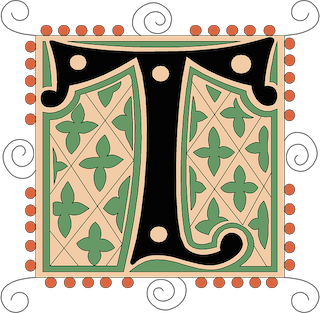 he concepts behind Macro Meditations began to crystallize in my mind well over a decade ago. While working around researchers who contemplated the latest findings in complex systems theory, I reshaped my lens to the world. The portrayal of science as the unending, iterative process through which we find and conquer all problems–in the name of enlightenment and technological progress–suddenly felt rather simplistic, even parochial.
he concepts behind Macro Meditations began to crystallize in my mind well over a decade ago. While working around researchers who contemplated the latest findings in complex systems theory, I reshaped my lens to the world. The portrayal of science as the unending, iterative process through which we find and conquer all problems–in the name of enlightenment and technological progress–suddenly felt rather simplistic, even parochial.
We are instilled as children with faith that science and math are limitless in scope. Society impels us to believe math and science are omnipotent beacons of illumination, a force incessantly eradicating the inexplicable from our midst. Belief in science's vast resolving power is seldom questioned.
Later, if one takes advanced math courses, they are confronted with impossibility results. By showing what cannot be solved, impossibility results embody the very limits of math and logic. For me, learning of them caused a momentary bout of cognitive dissonance, leading to an unnerving epiphany. To understand its significance, we must go back to the earliest days of the twentieth century.
Several brilliant mathematicians spent the first decades of the 20th century constructing frameworks they hoped would be capable of proving everything. Three men, in particular, are of note: David Hilbert, Albert Whitehead, and Bertrand Russell.
Bertrand Russell and Albert Whitehead constructed a system of logic with which they aimed to prove all of mathematics. In three volumes, Principia Mathematica set out a system of fundamental truths that could be used as building blocks. You can think of their system like a set of legos, along with a building code for how to combine them.
David Hilbert, similarly, believed that it was essential to prove rigorously the basis of arithmetic. At first, he was quite supportive of Russell's work. By the early 1920s, however, Hilbert concluded that Russell's Principia was unlikely to be both consistent (it did not produce contradictions) and complete (it could prove every possible formulation one could generate from the statement syntax rules laid out by the Principia). This disagreement led Hilbert to come up with his own system of axioms for proving arithmetic.
Alas, the laudable goal on which these great minds toiled was to meet a surprising fate. As the 1920s wore on, researchers found these systems of axioms incapable of proving many statements (i.e., the systems were incomplete). Devising systems that could prove everything without introducing contradictions was intellectually exhausting. Bertrand Russell abandoned a fourth volume of the Principia, which was to formally prove geometry, purportedly on account of weariness with the endeavor.
Then, in 1931, Kurt Gödel found a striking flaw that would forever cement Gödel's name in the annals of logic. He proved the entire mission was impossible. In what would become his famous Incompleteness Theorems, Gödel showed that if one constructs a logical system of axioms that is sufficiently expressive to make statements about the axiom system itself, then the system will fail when certain statements are evaluated. Consider the following:
This statement is not provable.
You can thank Kurt Gödel for the meme of a robot self-destructing upon hearing an internally inconsistent statement. The meme, while absurd, is based on a grain of truth: no internally consistent system of logic can evaluate such statements. If the system were to prove it to be true or false, then we have a contradiction and thus the entire system becomes internally inconsistent. Or, if the system fails to prove the statement, then the system is incomplete. With this beautifully simple self-referential statement, David Hilbert's and Bertrand Russell's dreams of mathematical beauty were forever dashed.
Through acquaintance with Bertrand Russell's struggles to derive an all-encompassing axiomatic system of logic, I came to appreciate the fundamental limits of math and science. Kurt Gödel's insight, which led Russell to cast what should have been his crowning achievement into the wastebasket, startled me out of my infatuation. Gödel's finding is a stark reminder that no theory can explain everything.
In one sense, the power to disprove entire classes of theories with a single argument is an extremely potent feature of mathematics. On the other hand, proofs of impossibility shatter the childhood view of math as the infinite intellectual ore seam waiting to be mined by anyone sufficiently inquisitive and tenacious. There is a limit to what can be mined, and some of what can be mined has the curious effect of forever closing parts of the mine from further exploration.
Many problems are proven to have no analytic (exact) solution. From a naïve perspective, this is a profoundly distressing fact. Yet, that these tools have limits should be reassuring! Their limitations ensure that humanity has a place in the universe alongside algorithms.
I dedicate this blog to helping us understand that math and science have limitations. I hope to elucidate our misuse of these tools, particularly in economics, where faulty logic and misapplication of math causes momentous public policy blunders. Through the community fostered by this blog, my goal is to nurture a dialogue concerning improvements to our decision-making and forecasting. I hope that in the process we can foment skepticism towards economists, particularly towards their equilibrium models.